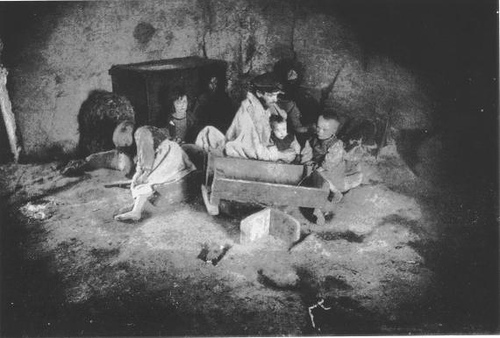The only common English word that has five vowels in a row is queueing.
Search Results for: in a word
“I Travelled Among Unknown Men”
Samuel Taylor Coleridge and William Wordsworth used to roam the hills and coast of southwest England on long night walks; eventually the local villagers began to whisper that they were spies for the French.
The government sent an agent to investigate; he reported that they were “mere poets.”
“Uncovered Skeleton Limbs”

“… six famished and ghastly skeletons, to all appearance dead, huddled in a corner, their sole covering what seemed to be a ragged horse cloth, and their wretched legs hanging about, naked above the knees. I approached in horror and found by a low moaning that they were alive, they were in fever — four children, a woman and what had once been a man. … In a few minutes I was surrounded by at least 200 of such phantoms, such frightful spectres as no words can describe. By far the greater number were delirious either from famine or fever. … Within 500 yards of the Cavalry Station at Skibbereen, the dispensary doctor found seven wretches lying, unable to move, under the same cloak — one had been dead many hours, but the others were unable to move, either themselves or the corpse.”
— From a letter by a Mr. O’Brien to the Duke of Wellington describing a visit to Skibbereen during the Irish potato famine, Dec. 17, 1846
Who?
In May 2005, someone delivered a box of ashes to the council chambers of Queanbeyan, a city in New South Wales, Australia. It was engraved with the words “Elizabeth Clarke Cunningham, Aged 59 years, Died 13 June 1997.”
The box was passed on to the New South Wales police, but no one has been able to discover who Cunningham was, whether she had any relatives, or who delivered her ashes.
High Profile
There are only two books in the Bible that do not contain the word God.
They are Esther and Song of Solomon.
Low Billing
The word eternity occurs only once in the King James Bible (in Isaiah 57, verse 15).
“What Is This Sea Which Is All Round Me?”
“The next day I was sad and sick at heart, for I felt how dull it was to be thus cut off from all the rest of the world. I had no great wish for work: but there was too much to be done for me to dwell long on my sad lot. Each day as it came, I went off to the wreck to fetch more things; and I brought back as much as the raft would hold.”
— From Robinson Crusoe in Words of One Syllable by Mary Godolphin, 1869
Sports Illustrated Cover Jinx
You’d think it would be an honor to appear on a magazine cover, but at Sports Illustrated it’s a curse. Braves third baseman Eddie Mathews appeared on the magazine’s very first issue, then suffered a hand injury a week later and missed seven games. Here’s what happened to other cover subjects:
- Jan. 31, 1955: Skier Jill Kinmont hit a tree and was paralyzed from the neck down.
- Nov. 18, 1957: After the headline “Why Oklahoma Is Unbeatable,” the Sooners immediately lost to Notre Dame.
- May 26, 1958: Formula One driver Pat O’Connor was killed in a 15-car pileup.
- Feb. 13, 1961: Figure skater Laurence Owen died in a plane crash.
- Dec. 14, 1970: The University of Texas fumbled nine times against Notre Dame, losing the Cotton Bowl.
- April 6, 1987: “Believe it! Cleveland is the best team in the American League!” The Indians lost 101 games that year.
- Sept. 4, 1989: Baseball Commissioner Bart Giamatti’s words about Pete Rose appeared on the cover; days later, Giamatti died of a heart attack.
- June 5, 1995: Giants third baseman Matt Williams broke his foot and missed two and a half months.
The magazine acknowledged the jinx by putting a black cat on a 2002 issue. Rams quarterback Kurt Warner refused to pose with the cat — and the Rams won their next two games and their second consecutive NFC championship.
Command Performance
The Bavarian village of Oberammergau has a special deal with God. While the bubonic plague was ravaging Europe, the town’s citizens vowed that if they were spared they would perform a play every 10 years depicting the life and death of Jesus.
God, apparently, accepted. The death rate among adults rose from 1 in October 1632 to 20 in March 1633, but then it dropped again to 1 in July 1633.
True to their word, the villagers staged a play in 1634, and they’ve done so every 10 years ever since.
Semordnilaps
A palindrome is a word or phrase that is spelled the same backward and forward. A semordnilap (“palindromes” spelled backward) produces a different word when reversed:
flog — golf
edit — tide
knits — stink
leper — repel
lager — regal
pupils — slipup
drawer — reward
diaper — repaid
